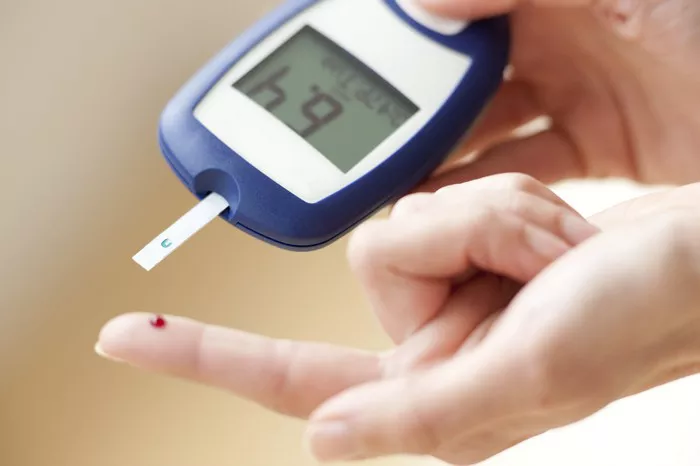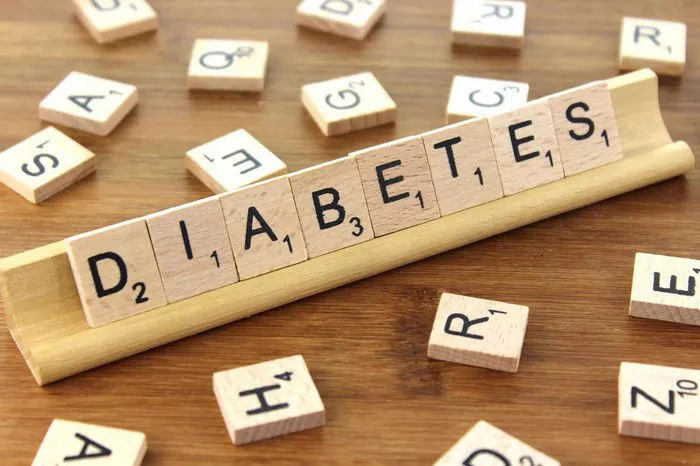Low blood sugar, or hypoglycemia, is a common concern for individuals managing diabetes, particularly those on insulin or certain oral medications. Nighttime hypoglycemia can be particularly troublesome, disrupting sleep and leading to a cycle of poor rest and fluctuating blood sugar levels. This article will provide an in-depth look at what to eat at night to maintain stable blood sugar levels, emphasizing the importance of balanced, nutritious choices and practical tips for incorporating these foods into your evening routine.
Understanding Low Blood Sugar
Hypoglycemia occurs when blood sugar levels drop below the normal range, typically less than 70 mg/dL. Symptoms can include shakiness, sweating, confusion, irritability, and in severe cases, loss of consciousness. For people with diabetes, managing blood sugar levels is crucial to prevent both short-term discomfort and long-term complications.
Nighttime hypoglycemia can be particularly insidious because it can disrupt sleep and may go unnoticed until symptoms become severe. It often results from a combination of factors, including the timing and type of diabetes medications, evening meal composition, and physical activity levels.
The Role of Evening Meals in Blood Sugar Management
To prevent nighttime hypoglycemia, it’s essential to understand the role that evening meals play in blood sugar regulation. The right combination of foods can help stabilize blood sugar levels, providing a steady source of glucose throughout the night.
Carbohydrates: The Steady Release of Glucose
Carbohydrates are the body’s primary source of energy, broken down into glucose and absorbed into the bloodstream. However, not all carbohydrates are created equal. Complex carbohydrates, such as whole grains, legumes, and vegetables, are digested more slowly than simple carbohydrates, like sugary snacks and white bread. This slow digestion helps maintain a steady release of glucose, preventing sudden spikes and drops in blood sugar levels.
Proteins: Sustained Energy and Satiety
Proteins are essential for growth, repair, and maintaining muscle mass. They also play a crucial role in blood sugar management by slowing down the absorption of carbohydrates. Including a good source of protein in your evening meal can help keep you feeling full longer and provide a sustained source of energy.
Fats: Moderation is Key
Fats are an important part of a balanced diet, providing essential fatty acids and helping the body absorb fat-soluble vitamins. However, they should be consumed in moderation, particularly for individuals with diabetes. Healthy fats, such as those found in avocados, nuts, seeds, and olive oil, can help slow the absorption of carbohydrates and provide lasting energy without causing significant spikes in blood sugar.
What to Eat at Night: Specific Food Recommendations
Whole Grains
Whole grains are an excellent source of complex carbohydrates and fiber, which help regulate blood sugar levels. Options like quinoa, brown rice, oats, and whole wheat bread are all great choices for an evening meal.
Examples:
- Quinoa Salad: Combine cooked quinoa with mixed vegetables, a lean protein like grilled chicken or tofu, and a light dressing made with olive oil and lemon juice.
- Overnight Oats: Mix rolled oats with low-fat milk or a milk alternative, add some fruit and nuts, and let it sit in the refrigerator overnight. This makes a quick and convenient breakfast that can also serve as a late-night snack.
Lean Proteins
Incorporating lean proteins into your evening meal can help stabilize blood sugar levels and keep you feeling full throughout the night. Options include poultry, fish, eggs, low-fat dairy, and plant-based proteins like beans, lentils, and tofu.
Examples:
- Grilled Chicken Breast: Serve with a side of roasted vegetables and a small portion of whole grain rice.
- Lentil Soup: A hearty lentil soup made with vegetables and a vegetable or chicken broth can be both filling and nutritious.
Healthy Fats
Healthy fats can be a beneficial addition to an evening meal, helping to slow the absorption of carbohydrates and providing lasting energy. Be mindful of portion sizes, as fats are calorie-dense.
Examples:
- Avocado Toast: Spread mashed avocado on a slice of whole grain bread and top with a sprinkle of salt and pepper.
- Nut Butter and Apple Slices: Pairing a small amount of almond or peanut butter with apple slices provides a satisfying and balanced snack.
Non-Starchy Vegetables
Non-starchy vegetables are low in calories and carbohydrates, making them an excellent choice for an evening meal. They are also high in fiber, vitamins, and minerals.
Examples:
- Steamed Broccoli: Serve with a drizzle of olive oil and a sprinkle of parmesan cheese.
- Mixed Vegetable Stir-Fry: Sauté a mix of bell peppers, broccoli, snap peas, and carrots in a small amount of sesame oil and soy sauce.
Balancing Evening Meals for Optimal Blood Sugar Control
Creating balanced evening meals that incorporate the right mix of carbohydrates, proteins, and fats can help prevent nighttime hypoglycemia and maintain stable blood sugar levels. Here are some tips for putting together balanced meals:
Include a Source of Lean Protein
Adding a source of lean protein to your evening meal can help slow the absorption of carbohydrates and keep you feeling full longer. Examples include grilled chicken, fish, tofu, beans, or low-fat dairy products.
Opt for Complex Carbohydrates
Choose complex carbohydrates over simple ones to provide a steady release of glucose throughout the night. Whole grains, legumes, and starchy vegetables are excellent choices.
Don’t Skip Healthy Fats
Include a small amount of healthy fats to help slow carbohydrate absorption and provide lasting energy. Options include avocados, nuts, seeds, and olive oil.
Fill Half Your Plate with Non-Starchy Vegetables
Non-starchy vegetables are low in calories and carbohydrates but high in fiber, vitamins, and minerals. Aim to fill half your plate with vegetables like broccoli, spinach, peppers, and zucchini.
Sample Evening Meals for Blood Sugar Management
Grilled Salmon with Quinoa and Steamed Vegetables
- Ingredients:
- 4 oz grilled salmon
- 1/2 cup cooked quinoa
- Steamed broccoli and carrots
- 1 tsp olive oil
- Lemon wedges for garnish
- Preparation:
- Grill the salmon until cooked through.
- Cook quinoa according to package instructions.
- Steam the broccoli and carrots until tender.
- Drizzle the olive oil over the vegetables.
- Serve the salmon with quinoa and vegetables, garnished with lemon wedges.
Turkey and Vegetable Stir-Fry
- Ingredients:
- 4 oz ground turkey
- 1 cup mixed bell peppers, sliced
- 1 cup snap peas
- 1 cup broccoli florets
- 1 tbsp soy sauce
- 1 tsp sesame oil
- 1 tsp grated ginger
- Preparation:
- In a large pan, cook the ground turkey until browned.
- Add the vegetables and stir-fry until tender.
- Add the soy sauce, sesame oil, and grated ginger, and stir to combine.
- Serve the stir-fry with a small portion of brown rice or quinoa.
Black Bean and Sweet Potato Tacos
- Ingredients:
- 1 cup black beans, cooked
- 1 medium sweet potato, diced and roasted
- Whole wheat tortillas
- 1/2 cup diced tomatoes
- 1/4 cup chopped cilantro
- 1/4 cup diced red onion
- 1 tbsp lime juice
- Preparation:
- Roast the diced sweet potato in the oven until tender.
- Warm the black beans in a small pot.
- Fill the tortillas with black beans and roasted sweet potatoes.
- Top with diced tomatoes, cilantro, red onion, and a squeeze of lime juice.
Greek Yogurt Parfait with Berries and Nuts
- Ingredients:
- 1 cup Greek yogurt
- 1/2 cup mixed berries (blueberries, strawberries, raspberries)
- 1 tbsp chopped nuts (almonds, walnuts)
- 1 tsp honey (optional)
- Preparation:
- Layer the Greek yogurt with mixed berries in a bowl.
- Sprinkle with chopped nuts and drizzle with honey if desired.
- Serve immediately or refrigerate for later.
Practical Tips for Preventing Nighttime Hypoglycemia
Monitor Your Blood Sugar Levels
Regular monitoring of blood sugar levels is essential for managing diabetes and preventing hypoglycemia. Check your levels before and after your evening meal, as well as before bed, to ensure they are within the target range.
Adjust Medication Timing and Dosage
Work with your healthcare provider to adjust the timing and dosage of your diabetes medications if you experience frequent nighttime hypoglycemia. They may recommend changes to your insulin regimen or other medications to help stabilize your blood sugar levels overnight.
Avoid Alcohol Before Bed
Alcohol can interfere with blood sugar regulation and increase the risk of hypoglycemia, particularly when consumed on an empty stomach. If you choose to drink alcohol, do so in moderation and consume it with a meal or snack that contains carbohydrates and protein.
Have a Bedtime Snack
A small, balanced snack before bed can help prevent blood sugar levels from dropping overnight. Choose a snack that includes a mix of carbohydrates and protein, such as a piece of fruit with a handful of nuts or a slice of whole grain toast with peanut butter.
Examples of Bedtime Snacks:
- Apple Slices with Cheese: Pair apple slices with a few slices of low-fat cheese for a balanced snack.
- Whole Grain Crackers with Hummus: Enjoy whole grain crackers with a small serving of hummus.
- Greek Yogurt with Berries: A small bowl of Greek yogurt with a handful of berries can provide protein and fiber.
Stay Hydrated
Dehydration can affect blood sugar levels, so it’s important to stay hydrated throughout the day. Aim to drink plenty of water and limit sugary beverages.
Practice Stress Management
Stress can impact blood sugar levels and overall health. Incorporate stress management techniques, such as deep breathing, meditation, or gentle exercise, into your daily routine to help maintain stable blood sugar levels.
See also: 15 Good Eating Habits For People With Diabetes
Conclusion
Managing blood sugar levels at night is crucial for individuals with diabetes to prevent nighttime hypoglycemia and ensure a restful night’s sleep. By making mindful choices about what to eat in the evening and incorporating balanced meals that include complex carbohydrates, lean proteins, healthy fats, and non-starchy vegetables, you can help stabilize your blood sugar levels and reduce the risk of nighttime hypoglycemia.
Regular monitoring, adjusting medications as needed, and adopting healthy lifestyle habits, such as staying hydrated and managing stress, are also essential components of effective blood sugar management. With careful planning and attention to your evening meals and snacks, you can enjoy a stable and healthy blood sugar level throughout the night.
Related topics:
























